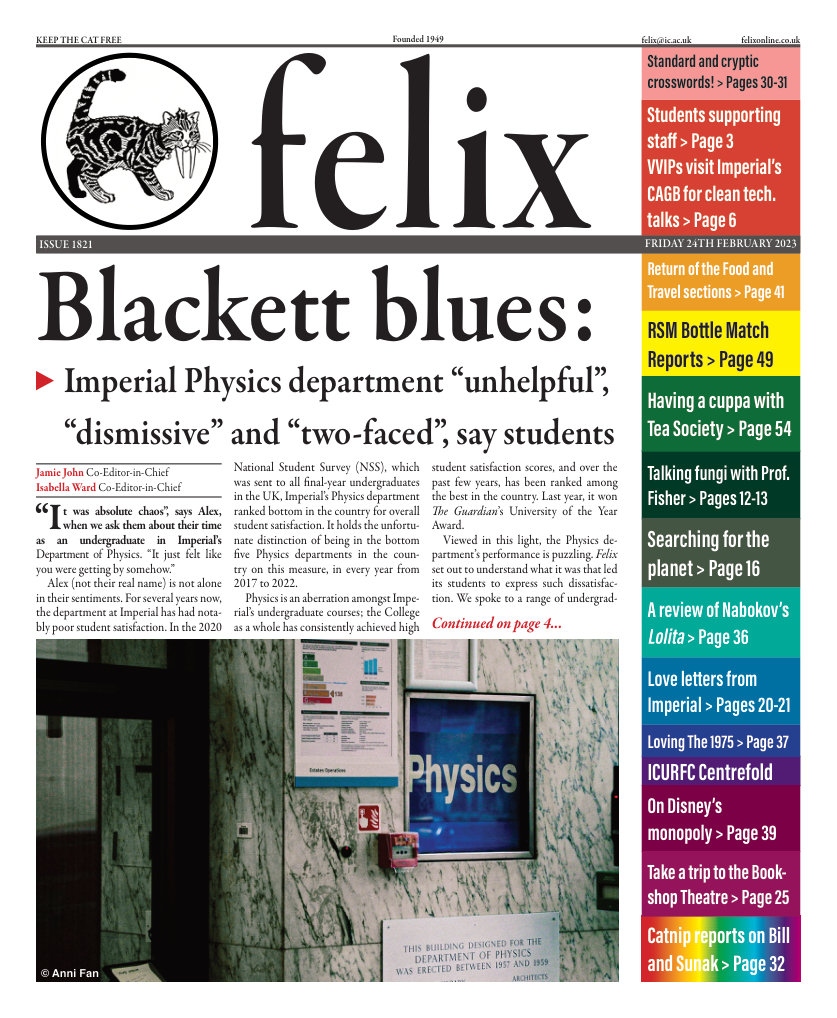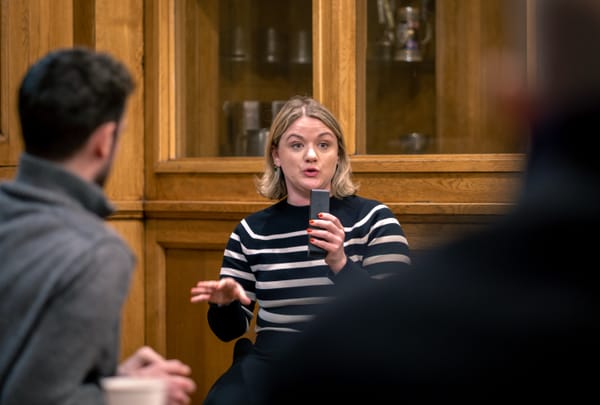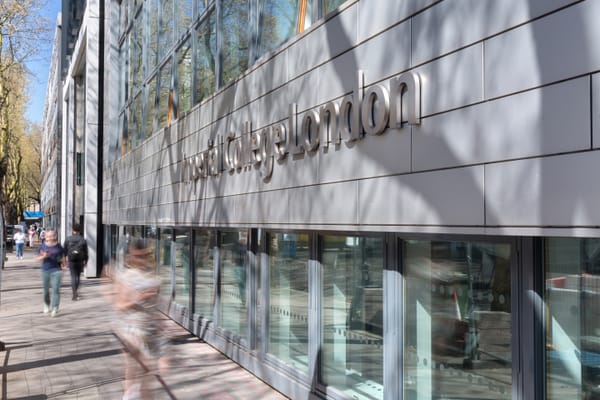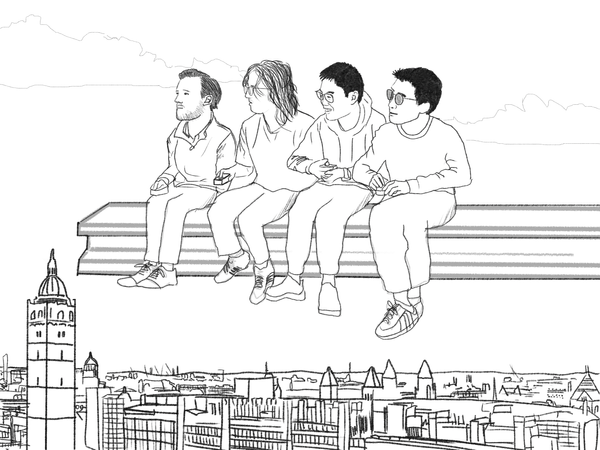Students form strike solidarity group to protect the ‘future of education’
Imperial students aim to help bring end to disputes by increasing pressure on employers.
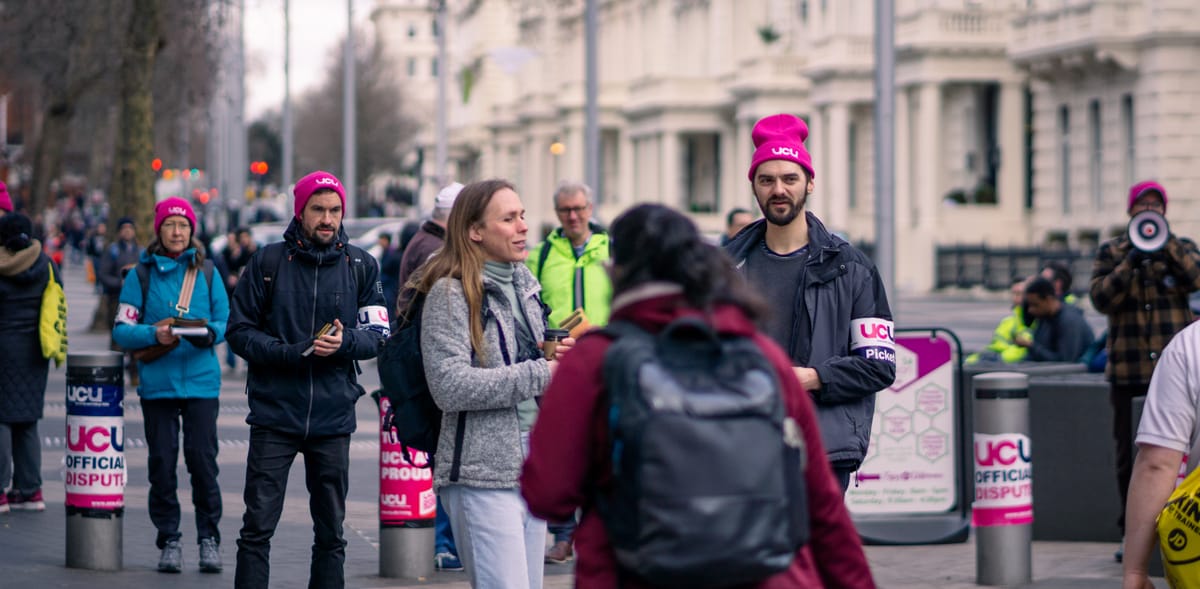
As staff continue to strike, student support is becoming more visible, with a student-solidarity group having formed recently at Imperial. I spoke to founding member Natalia about the group’s motivations and ambitions.
There is already evidence that students at Imperial overwhelmingly support the strikes, with a 2021 referendum on whether the Union should support industrial action over pension disputes concluding over 73% of voting students supported the strikes. Last month, the Union Council voted to continue supporting the strikes and, novelly, to support the marking boycott.
Imperial Students Support the Strikes has been set up as a way to actively support the strikes from the student side. Having held their first meeting last Friday, the group aims to elevate the pressure placed on employers by the strikes: “the more pressure we can put on employers, the sooner the dispute will end.”
They have only formed recently but, having set up a WhatsApp group and distributed posters around campus, hope to see their numbers grow.
Natalia argues their cause goes further than solidarity with staff, to self-consideration for students as well: “Staff working conditions are student learning conditions. The strikes are disruptive to our learning, but that pales in comparison to the disruption we’re already facing from staff being overworked and underpaid.”
The strikes are disruptive to our learning, but that pales in comparison to the disruption we’re already facing from staff being overworked and underpaid.
The neglect of staff is apparently multi-faceted, as Natalia cites the “slashing” of their pensions and real terms decrease in pay, as well as the increase in the number of casualised contracts.
Along the picket line, there has been much talk on the latter, with staff arguing that the short-term contracts and uncertainty of renewal has contributed towards the increase in stress and mental-health issues within the sector.
All this concerns Natalia about the future of higher education, as she tells Felix “The UCU conducted a survey of their members last year and 60% of respondents said they’re likely to leave the sector within the next 5 years because of either their pay, pensions, or working conditions. These strikes are for the future of education.”
She emphasises the particular importance of recognising this within the Imperial student community, as many will go into academia, “so these strikes are for their future working conditions,” she argues.
Although the College have said that any money saved throughout the strikes by withholding pay will be “reinvested to support our students’ experience”, Natalia believes that any benefit to students from this is grossly undermined by fundamental flaws within the higher education landscape, and that students will suffer until the dispute is settled. She explains “The UCU opposes the marketised model of education that puts profit above the wellbeing of both staff and students — the same model that means that we have to pay extortionate tuition fees. Their fight is our fight.”
Their fight is our fight.
Whilst striking staff welcome the extra pressure exerted by students, I ask what she thinks students can bring that striking staff cannot. Natalia explains how she feels that striking staff have been unfairly portrayed by the press, who often discuss the impact on students in a way that villanises the staff. She hopes that students visibly being on the side of striking staff will undermine these narratives.
Staff are grateful for the support from students thus far, and hope to win over more, vowing in Thursday’s meeting to “work and communicate closely with students who already support us, and talk to other students as much as we can.”
Whilst the group gets off their ground, she advises frustrated students to continue to channel their anger into action by emailing the president and provost about the disruption.
The group will next meet on Thursday 2nd March.

